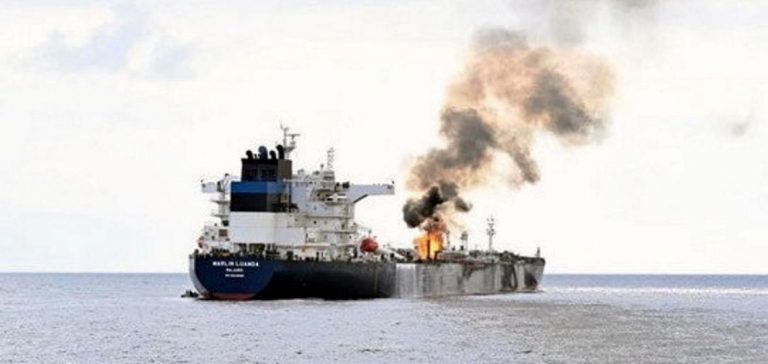The recent Israeli airstrikes on Yemen’s Hodeidah and Ras Isa ports have severely damaged local energy infrastructure. These facilities, located along the Red Sea, play a strategic role in the Middle East’s oil transit. According to Israeli authorities, the targeted facilities were used as transit points for weapons from Iran aimed at strengthening the military capabilities of the Houthis, a group backed by Tehran. This situation has not only disrupted maritime trade in the region but has also heightened concerns over potential disruptions in hydrocarbon supplies.
These incidents come amid rising regional tensions following the Hamas-led attack on Israel on October 7. In response, Israel has ramped up its military actions, targeting strategic points used by the Houthis to disrupt maritime traffic. Recent reports from S&P Global Commodity Insights indicate that around 3.3 million barrels of crude oil and refined products pass through the Bab al-Mandab Strait daily, near the attacked ports. This volume represents a significant part of the global supply, and any disruption in this sensitive region could have major repercussions on the energy markets.
Repercussions on Regional Maritime Trade
The strikes have forced several maritime operators to revise their routes, leading to longer journeys around the Horn of Africa. This situation complicates maritime logistics, increases costs, and slows down deliveries. The Bab al-Mandab Strait is a strategic route linking the Indian Ocean to the Mediterranean Sea via the Suez Canal. Due to its geographical position, this area is vital for energy transit. However, the rise in attacks jeopardizes this navigational route, raising the risk for oil tanker operators.
According to S&P Global analysts, although these recent attacks have not yet affected the physical flow of oil, the risk of new disruptions remains high. The conflict could push other regional actors, notably Iran, to intensify their support for armed groups in the region, further increasing the risks for infrastructures and vessels transiting through this corridor. Shipping insurance costs, already on the rise, could continue to increase, negatively impacting the margins of oil companies operating in the region.
Yemen’s Energy Situation and External Dependence
Yemen, although a minor oil producer, remains a strategic player due to its geographical location. Before the civil war broke out in 2011, the country produced between 300,000 and 400,000 barrels per day. Today, its production has dropped to around 10,000 barrels per day, reserved for local consumption. In the absence of sufficient refining capacity, Yemen relies heavily on imports of refined products from the United Arab Emirates, Saudi Arabia, Russia, and India to meet its energy needs. According to S&P Global Commodities at Sea, imports of refined products have reached 3.3 million barrels this year at Hodeidah and Ras Isa.
This dependence exposes the country to external fluctuations and logistical risks, worsened by political instability and military clashes. The Israeli attacks on these strategic ports risk further compromising the country’s energy supply, worsening an already fragile economic situation.
Geopolitical Tensions and Risks for Global Markets
The repercussions of these attacks are not limited to Yemen. Regional tensions have escalated after the assassination of Hezbollah leader Sayyed Hassan Nasrallah by Israeli forces in Lebanon. This escalation risks triggering retaliation from regional actors, increasing the likelihood of a broader conflict. If these tensions result in a reduction of transit capacity in the Bab al-Mandab Strait, oil prices could face upward pressure, exacerbating energy market instability.
Yemen, though playing a marginal role in production, remains a key transit point. Any disruption in this area can have ripple effects throughout the entire energy supply chain. Operators are closely monitoring the situation, aware that the conflict could spread to other strategic areas, further complicating the transport of hydrocarbons.






















